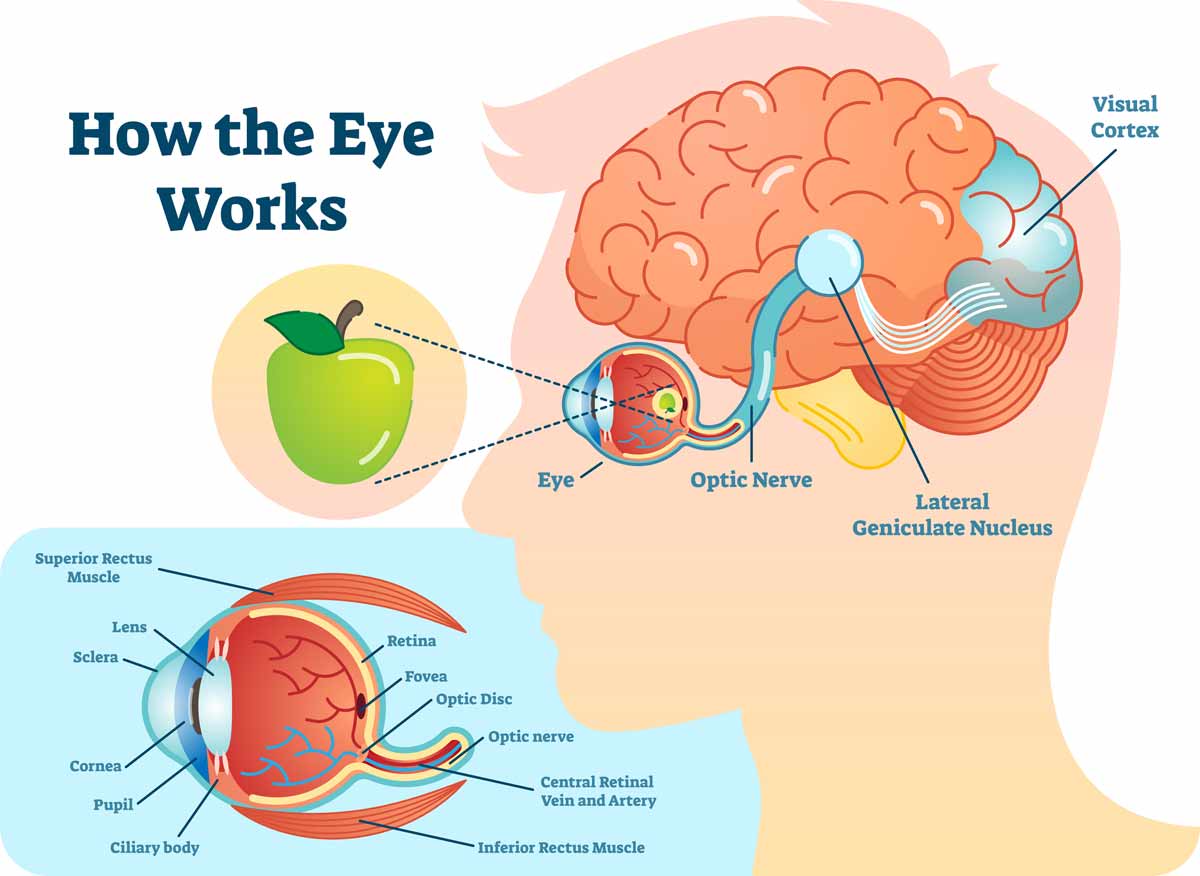Attorney Fred Pritzker helps children who suffer cortical vision impairment (CVI), including blindness. A cortical vision impairment lawsuit can provide the child with the finances needed to get medical help throughout his or her lifetime. In these cases, a parent can sue on behalf of their child, and the parents may also have claims for loss of wages and other harm.
What is cortical visual impairment?
Cortical Visual Impairment (CVI) is the most common cause of blindness in children. Unlike occular vision impairment, CVI results from damage to the visual centers of the brain.
As shown in the image below, human vision is an inner-connected system that requires transmission of signals from eyes to brain and back again. Injury to vision centers in the brain may result in total loss of vision even though the eyes remain intact. Put another way, the brain is unable to process what the eyes are able to see.
Contact Attorney Fred Pritzker about a CVI Lawsuit
What are the major causes of cortical vision impairment in children?
Oxygen deprivation in the brain (hypoxia) during pregnancy, delivery or shortly after birth that causes damage to the brain’s vision centers is a leading cause. So is ischemia, a condition in which not enough blood flows to the brain. Together, these processes are known as Hypoxic Ischemic Encephalopathy (HIE). Other causes include traumatic brain injury, inflammation (also known as Fetal Inflammatory Response Syndrome or “FIRS”), stroke, and infection, among others. In one of Fred’s CVI cases, he filed a birth injury lawsuit on behalf of a baby who was born with Listeria food poisoning (listeriosis), an infection caused by contaminated food. The little one suffered blindness due to CVI.
Unfortunately, these same disease processes may cause damage to other parts of the brain that control different physical and cognitive functions. Thus, it is not uncommon for children with CVI to have cognitive and developmental problems that compound the vision loss.
Can my child sue for personal injury?
It’s also important to note that CVI is not limited to neonates. It can happen to anyone, at any time.
What are signs and symptoms of CVI?
It is not easy to diagnose CVI in young children, especially because the eye examination may be normal or insufficiently abnormal to explain the full extent of the vision loss. Certain behaviors in children may indicate CVI including:
- Light gazing: the tendency to stare at room lights (and sometimes the sun)
- Photophobia: while some children with CVI stare at lights, others may avoid bright lights altogether
- Moving object preference: for some children, they see better when viewing moving rather than static objects
- Color preference: more able to follow and distinguish brightly colored objects rather than white or black objects
- Background preference: harder to identify and track objects or faces against patterned or “busy” backgrounds
- Head turning: children with CVI moving their head in a certain way or looking away to either side of an object; turning head to side when reaching
- Tiring from sustained visual stimuli
- Better peripheral vision than “straight on” viewing
- Better vision when the child is in motion rather than at rest
- Inconsistent vision: visual acuity varies even though the visual stimuli remains the same
- Use of touch and even taste to identify objects
Pritzker Hageman Law Firm
The national child safety law firm of Pritzker Hageman has significant experience and a reputation for success in cases involving CVI and related brain disorders. Attorney Fred Pritzker and his team of eye injury lawyers can help you and your son or daughter get answers, compensation and justice.

